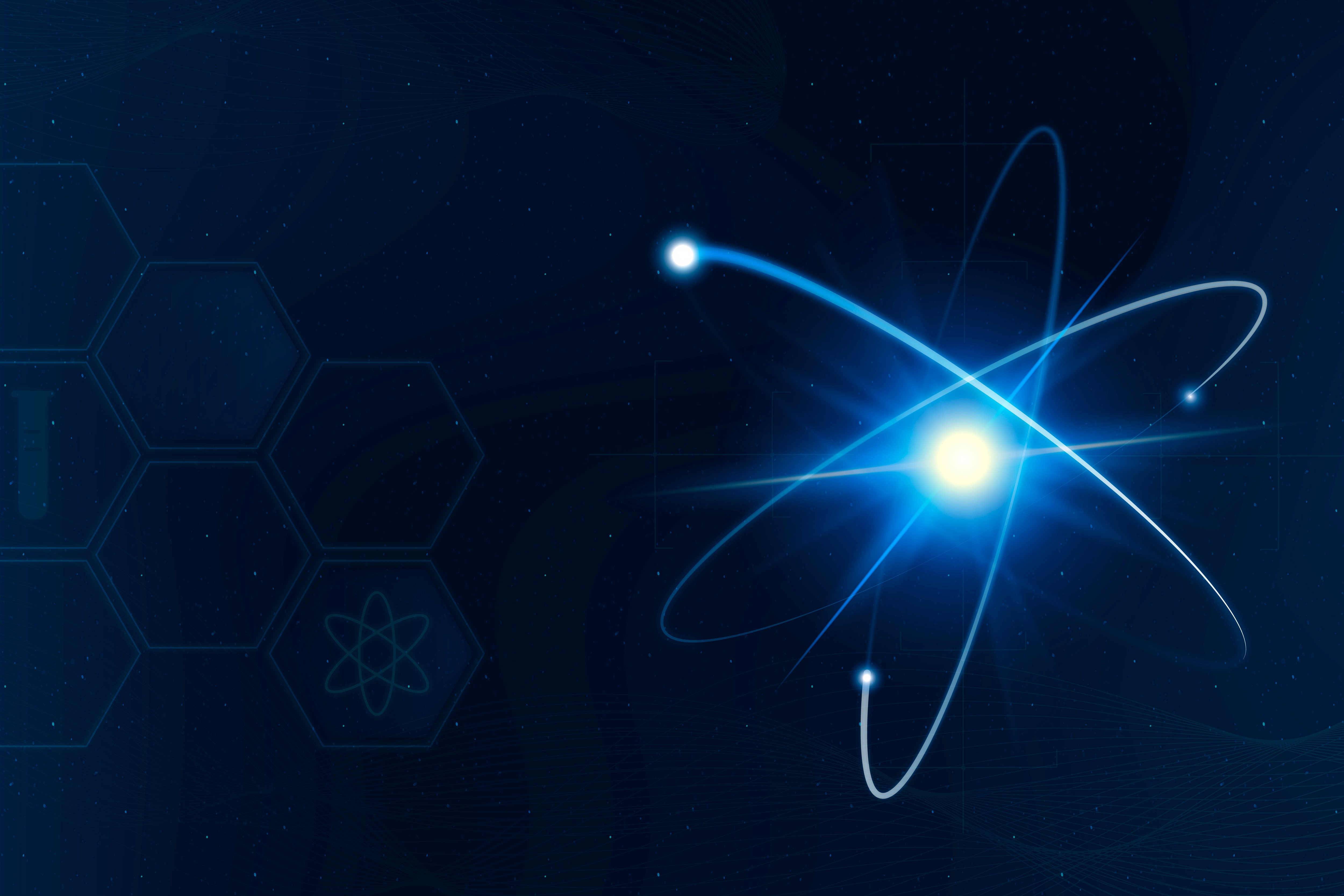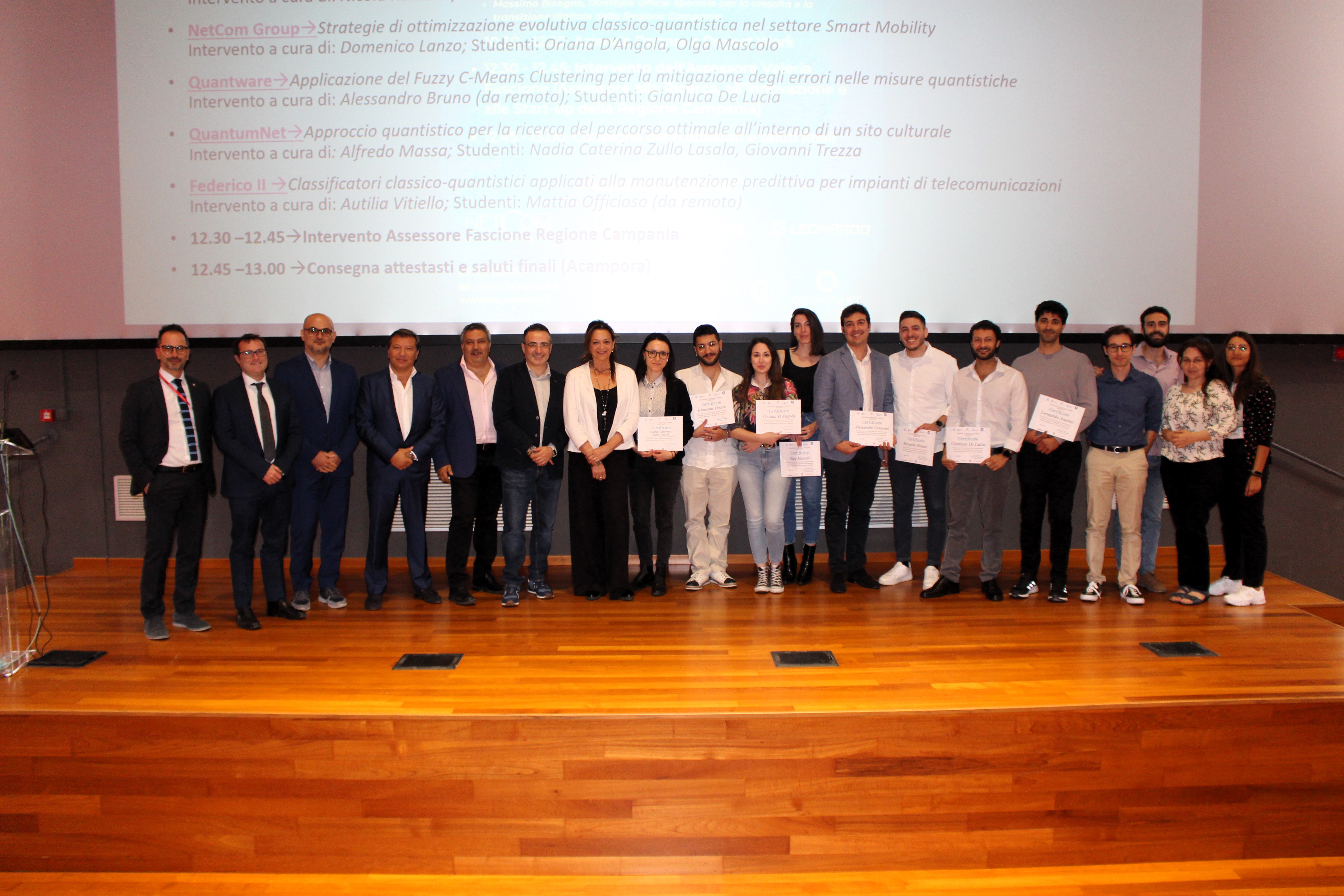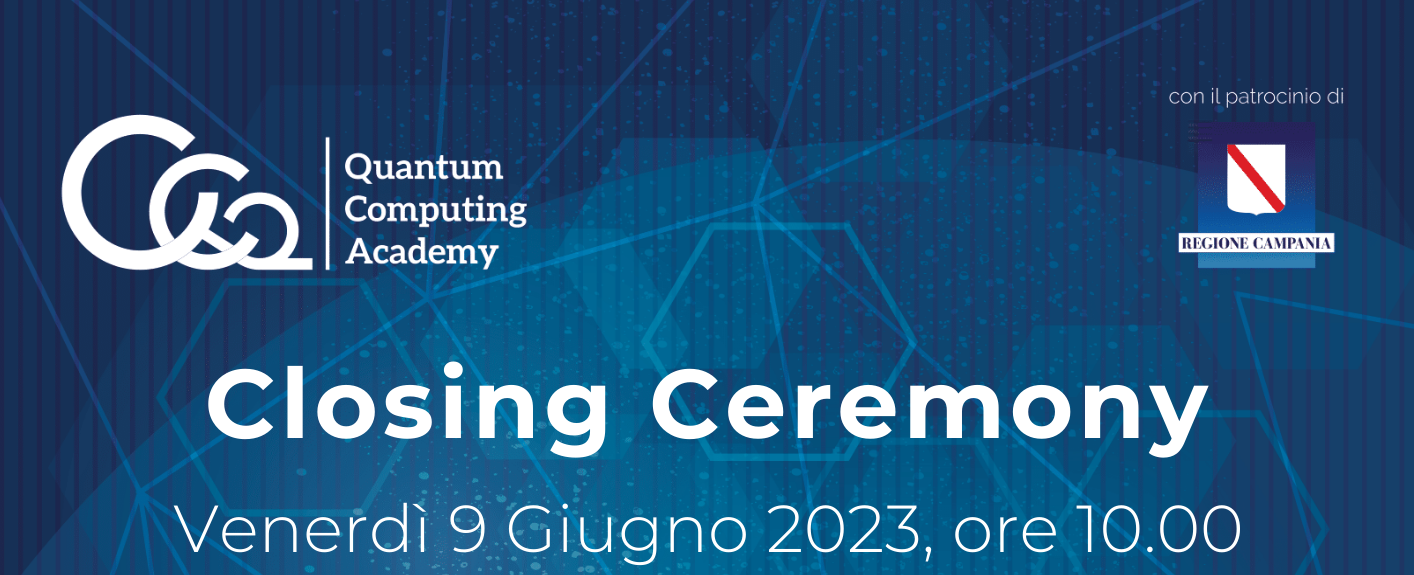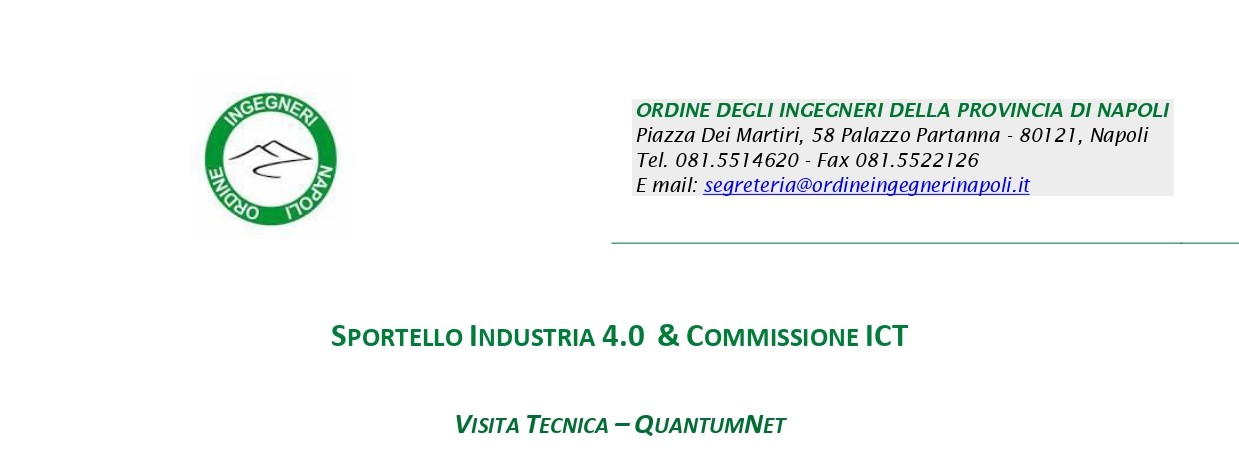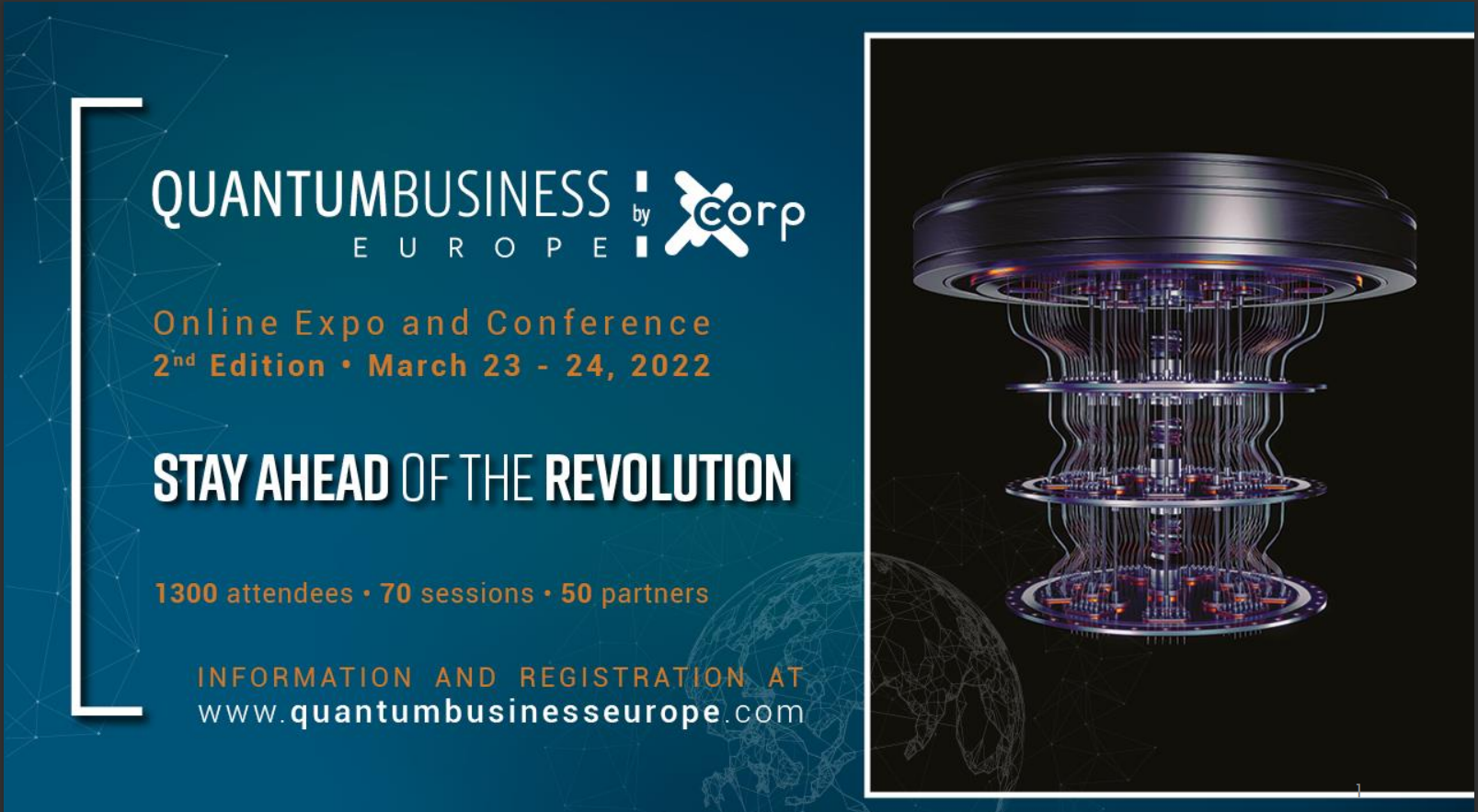QuantumNet is the first innovative start-up based in Italy that focuses on software issues related to Quantum Computing.
QuantumNet aims to develop skills and solutions that exploit the infinite possibilities of Quantum Computing, thanks to the collaboration with professors and researchers of the University of Naples Federico II.
The main advantage of this approach is the resolution of those highly complex problems that today require enormous time and technical resources to be addressed, such as those related to Cybersecurity, Big Data, and Artificial Intelligence.

quantumnet
Areas of Expertise

Optimization issues
The goal is the research of the best solution among all those possible through the maximization (or minimization) of certain quantities related to the problem itself.
It is evident that as the complexity of the problem and the number of variables involved increase, the classical algorithms can be inefficient and provide the optimal solution in not “reasonable” times. In this context, Quantum Computing can make it possible to effectively tackle problems that cannot be solved with current computers, and suggest a significant acceleration compared to classical algorithms thanks to the “superposition principle” that allows you to parallelize the calculations by performing operations on all possible solutions simultaneously.

Artificial Intelligence & Machine Learning
Artificial Intelligence and Machine Learning are emerging technologies capable of automatically extracting knowledge from data to perform specific tasks. Recent years have witnessed a strong interest in finding innovative approaches to Machine Learning and one of the most promising strategies consists in combining Machine Learning with Quantum Computing techniques. A variety of data analysis and Machine Learning protocols operate by performing matrix operations on vectors in high-dimensional spaces, which is among the jobs a quantum computer does best. Such linear algebra operations can be performed with remarkable speedups and many hybrid quantum-classical Machine Learning workflows have already been designed and tested. Moreover, Quantum Computing leads the way to new models characterized by improved learnability and expressibility with respect to the classical ones

Cybersecurity & Encryption
Cybersecurity deals with the security and integrity of data and messages, which travel the web every day, to protect them from cyber-attacks. The advent of supercomputers and quantum computers themselves can compromise existing classical encryption algorithms that rely on the computational difficulty of traditional computers to effectively solve some complicated problems, such as prime number factorization, at the basis of some encryption algorithms. Quantum Computing can help develop various techniques to counter this phenomenon and create new methods of quantum cryptography, such as Quantum Key Distribution which allows generating a cryptographic key shared between two users offering high security guaranteed by the principles of quantum mechanics.
IoT & Big Data
Due to the increasing popularity of IoT applications in a variety of industries and sectors (e.g., interconnected vehicles, smart appliances, sensing applications, monitoring systems and so on) and the new opportunities provided by the 5G network, a huge amount of data is generated and exchanged daily. The processing of such data is a computationally expensive task, and sometimes it can be out of the reach of currently available supercomputers. Thanks to the quantum phenomena of superposition and entanglement, quantum computers enable parallel information processing and unlock new strategies to solve complex problems much faster. This is why Quantum Computing is a key resource for managing big data, especially in the Digital Economy era where “data is the new oil”

What is Quantum Computing?
Quantum Computing is the most innovative theme of the decade. It is a real technological revolution that, with new hardware devices and a new software approach, allows information to be represented and manipulated through “quantum bits”, ie Qubits.
If the basis of classical computing is the bit, at the basis of quantum computing we find the qubit or quantum bit. While the former can only assume a well-defined value (“0” or “1”, “open” or “closed”, “on” or “off”), the qubit can also assume superimposed values. According to the Heisenberg Uncertainty Principle, a quantum element, such as the qubit, will never take on a well-defined value, but will always have overlapping and indeterminable states.
quantumnet
News
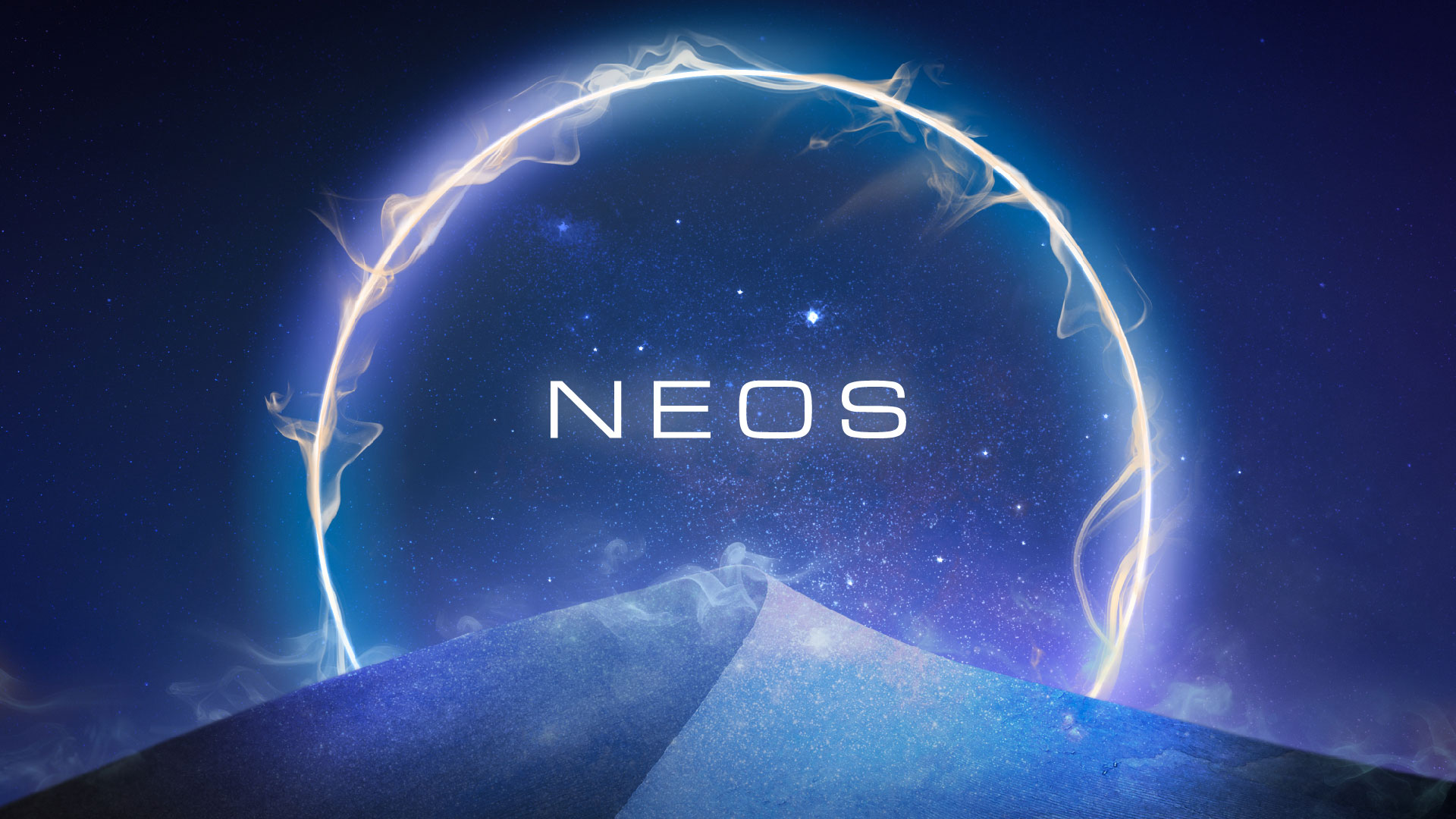
NEOS, the Linux distribution by QuantumNet and dedicated to quantum computing is now available in beta.
Do you need us?
Let’s keep in touch
- Phone+390817341740
- E-mailinfo@quantum-net.it
- Headquarter
Naples, Via Nuova Poggioreale c/o Centro Polifunzionale T7


